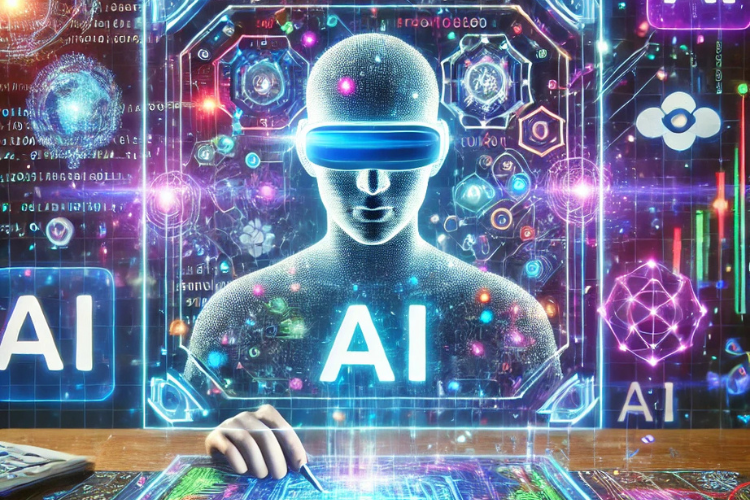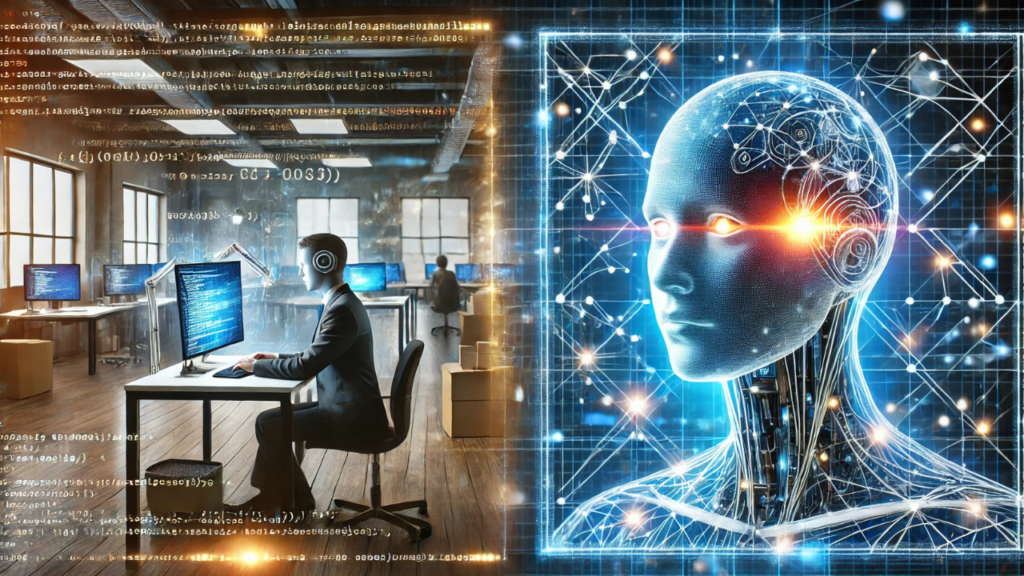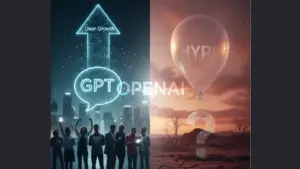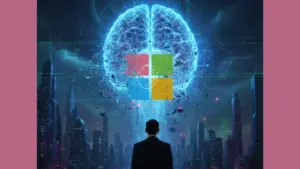“AI is here to assist, not replace,” said James Manyika, Google’s research chief. This statement highlights a crucial point about the evolving relationship between artificial intelligence (AI) and human coders. AI can automate repetitive tasks and generate template code, but the core aspects of creativity, problem-solving, and invention remain uniquely human. In this blog, we’ll explore why coding continues to be an indispensable skill in the age of AI and how developers can thrive in this hybrid future.
AI as an Assistant, Not a Replacement
AI has transformed the coding landscape. Tools like ChatGPT and Bard can generate boilerplate code or scripts for data analysis. However, AI lacks the contextual understanding needed for innovation. While AI can follow instructions, it cannot create new systems or solve complex problems without human guidance.
Coding is more than just writing syntax; it’s about solving real-world problems. Debugging code at 2 AM, for example, requires both logical thinking and creative problem-solving—something AI cannot replicate. Instead of fearing replacement, developers should embrace AI as a partner that enhances their productivity.
AI tools free developers from mundane tasks, allowing them to focus on high-impact work. This shift enables coders to push the boundaries of innovation while improving efficiency. With AI handling repetitive chores, human creativity becomes the driving force behind groundbreaking solutions.
The Unique Value of Human Coders
Coding combines logic and creativity. AI might generate ten variations of a login form, but only a human developer can design a user-friendly and secure authentication system from scratch.
Google emphasizes that AI tools amplify human efforts rather than replace them. Skilled developers are needed to guide AI, interpret its outputs, and make meaningful improvements. This collaboration ensures the creation of innovative solutions that meet user needs.
Moreover, coding fosters critical thinking and adaptability. Developers often face unforeseen challenges that require out-of-the-box solutions. While AI excels at executing predefined tasks, humans excel at adapting to changing requirements and solving unique problems. These traits make coders indispensable in the tech industry.
Skills Beyond Syntax – Why Coding Is a Mindset
Learning to code is not just about understanding programming languages. It teaches you how to think systematically and break down complex problems into manageable chunks. These skills are valuable across all industries, not just in tech.
Google views coding as a gateway to understanding how technology shapes the world. With AI becoming more influential, understanding its inner workings can be a superpower. Developers with this knowledge can create smarter solutions and shape the future of technology.
Coding also encourages resilience and perseverance. The process of debugging, refining, and iterating teaches patience and determination. These qualities are not only vital in software development but also in tackling challenges in any field. Learning to code equips individuals with a mindset that embraces problem-solving and continuous improvement.
The Strengths and Limitations of AI in Development
AI excels at tasks like generating boilerplate code, testing, and debugging. Tools like GitHub Copilot can catch errors faster than humans. However, AI often fails to understand the reasons behind those errors.
Developers remain essential to interpret issues and provide context-specific fixes. AI may be a super-smart assistant, but it’s humans who write the instructions and steer the ship. This collaboration between AI and developers leads to better outcomes.
Additionally, AI struggles with nuanced tasks. For example, it might identify a syntax error but fail to grasp the underlying logic flaw in a program. Human developers bring context, intuition, and experience to the table, ensuring the final product is robust and functional. This synergy between humans and AI creates a more efficient and effective development process.
Creativity, Invention, and Ethical Responsibilities
AI can remix existing ideas, but it struggles with original invention. For instance, it might generate multiple variations of an existing feature but cannot design a groundbreaking new app feature. Innovation requires intuition and experience, qualities only humans possess.
Coding also comes with ethical responsibilities. Developers act as gatekeepers, ensuring AI tools are fair, transparent, and accountable. By learning to code, individuals equip themselves to build technology responsibly and address ethical challenges.
Ethics in AI is particularly critical as technology becomes more integrated into daily life. Developers must consider the implications of their work, such as data privacy, bias in algorithms, and the societal impact of AI applications. Learning to code empowers individuals to not only build cutting-edge technology but also ensure it serves the greater good.
The Future of Coding in the AI Era
The job market is evolving, and the demand for coders who can work alongside AI is growing. Google predicts a hybrid future where humans and AI collaborate seamlessly. Developers who understand how to integrate AI into their projects will have a significant edge in this new landscape.

Learning to code now positions you at the forefront of this evolution. Coders will play a crucial role in designing systems where AI complements human creativity and problem-solving. By embracing this hybrid approach, developers can amplify their capabilities and remain irreplaceable in the tech world.
Furthermore, coding is a skill that opens doors to endless opportunities. It allows individuals to build tools, solve problems, and create their own solutions. As AI continues to advance, those who can code will be better equipped to harness its potential and drive innovation in various industries.
Conclusion
AI is reshaping the way we work, but coding remains a vital skill. It teaches logical thinking, fosters creativity, and empowers individuals to solve problems. While AI tools assist with repetitive tasks, they lack the human touch required for innovation and ethical responsibility.
Google’s message is clear: Coders are the heart of software development. By learning to code, you not only stay relevant but also gain the ability to shape the future. Embrace AI as a tool to amplify your potential and position yourself for success in the evolving tech landscape.
Platforms like StartupHakk are excellent resources for staying updated on trends and insights in the tech world. Whether you’re a beginner or an experienced developer, learning to code equips you to thrive in this dynamic environment. Start your coding journey today and be part of the future.




